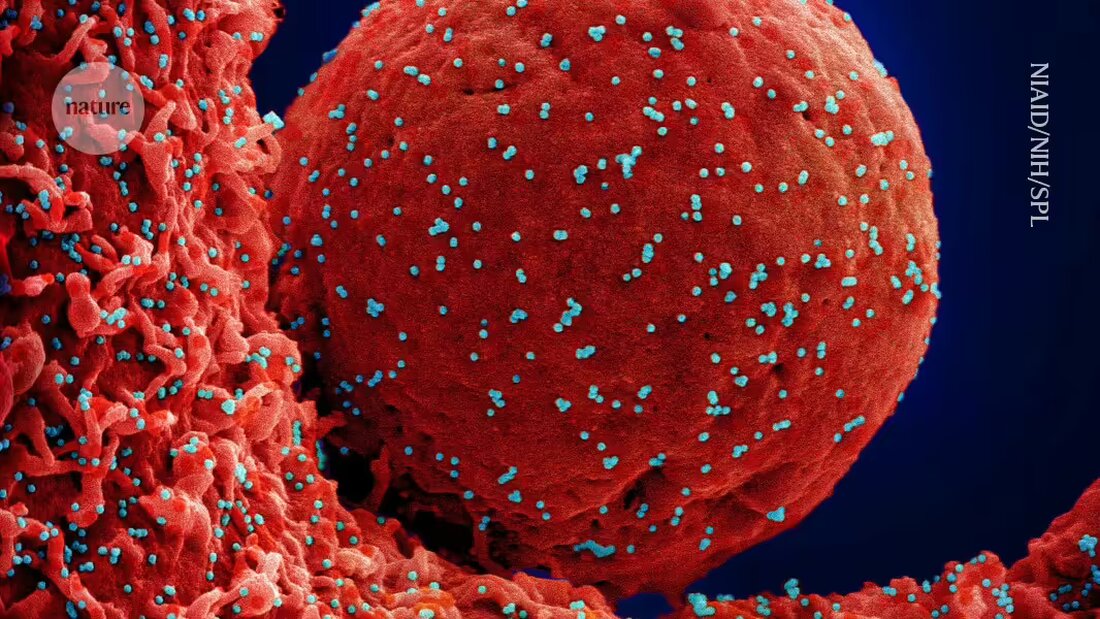A signaling molecule that helps boost inflammation in the lungs may play an important role in worsening some symptoms of Long COVID symptoms, according to a study that analyzed lung tissue samples from people with the condition.
The results, published July 17 inScience Translational Medicine 1, could help scientists more effective treatments for long COVID which causes symptoms such as "brain fog", fatigue, shortness of breath and lung damage and can persist for months or years after infection with SARS-CoV-2, the virus behind COVID-19.
By inhibiting the molecule — called interferon-gamma (IFN-γ) — in mice with COVID-19, "we were able to attenuate the chronic conditions after infection," says study co-author Jie Sun, an immunologist at the University of Virginia in Charlottesville. “In the future, we may target this route as a potential treatment for long COVID.”
Inflammatory protein
IFN-γ is one of many proteins the body releases to fight infections. When released by white blood cells called T cells, it sends signals to other immune cells and promotes Inflammation. In the short term, this increases blood flow to the infected area to aid in the healing process — but chronic inflammation can lead to damage to cells and tissues.
Previous research has shown that People with long COVID have increased levels of IFN-γ 2, and there is also evidence that the protein causes injuries in the alveoli 3- the sensitive air spaces in the lungs that transport gases into and out of the bloodstream. However, these studies have not been able to determine whether IFN-γ is a cause of the lung injuries associated with long-COVID or just an indication of another mechanism.
To investigate this, Sun and his colleagues proceeded in two steps. First, they recruited people with long COVID and compared cell samples from their lungs with those from people who had recovered from COVID-19 a few weeks before the study and with controls who were not infected. They used a technique called single-cell RNA sequencing to analyze the composition of the lung cell samples. They discovered that samples from people with long-COVID had higher levels of IFN-γ-producing T cells than samples from people without COVID-19 or those who had recovered from the infection.
The researchers then infected mice with SARS-CoV-2. Twenty-one days after infection, the mice had a cellular response in their lungs similar to that seen in people with long COVID, including increased levels of IFN-γ-producing T cells.
The researchers treated some of the infected mice with a substance that inhibits IFN-γ. They noticed a significant improvement in the animals' health — reduced overall inflammation in the lungs, lower levels of immune cells that promote inflammation, and fewer deposits of collagen, a substance that can damage and scar lung tissue.
Future treatments
The team hopes that targeting IFN-γ could have similar benefits for people with long COVID. “The next step would be to see if we can use a treatment that affects this pathway to see if symptoms are improved in patients,” says Stéphanie Longet, an immunologist at the International Center for Infection Research in Lyon, France, who herself has long COVID. She adds that there are already IFN-γ-inhibiting drugs on the market, such as baricitinib, which is currently used to treat severe COVID-19 and reduce inflammation caused by rheumatoid arthritis.
The researchers also emphasize the importance of studying other potential drivers of long COVID, which is believed to affect millions of people worldwide. “What we found here is likely a factor in a long COVID condition,” Sun says. “We want to explore more mechanisms to identify more targets in the future.”

 Suche
Suche
 Mein Konto
Mein Konto

